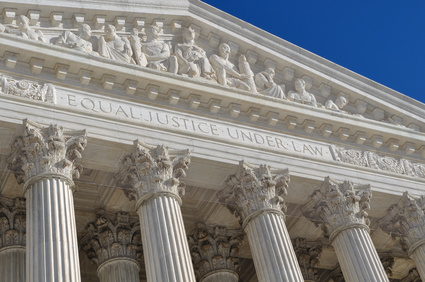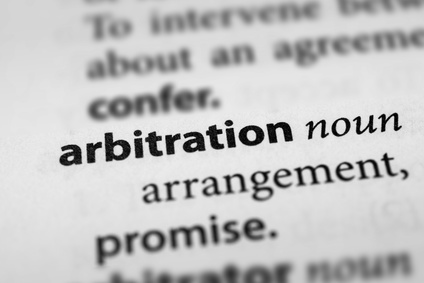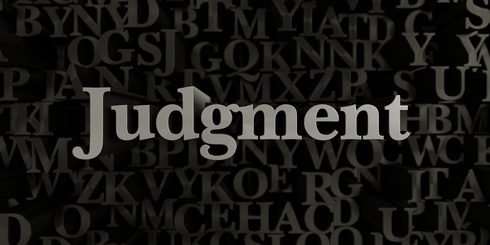A recent decision from the Third Circuit Court of Appeals examines both the provision of consent under the federal Telephone Consumer Protection Act (TCPA) and the bona fide error defense for debt collectors under the federal Fair Debt Collection Practices Act (FDCPA). The decision has dire implications for debt collectors, creditors and any commercial enterprise using telephone technology and QR codes in communicating with customers. A copy of the decision in Daubert v. NRA Group, LLC is available at: Link to Opinion. First up is the TCPA. The trial court ruled that the collection agency violated the TCPA when it used…
Posts published in “Debt Collection”
The U.S. Court of Appeals for the Fifth Circuit recently affirmed summary judgment under the Fair Debt Collection Practices Act (FDCPA) in favor of the debtor and against a debt collector, where the debt collector failed to mark the debtor’s account as disputed when it credit reported the account. The debt collector admitted that it had not marked the account as disputed because it incorrectly believed that credit reporting a debt as disputed was subject to the requirements of 15 U.S.C. § 1692g, which governs validation of a debt and the treatment of disputed debts. In so ruling, the Fifth…
The U.S. Court of Appeals for the Ninth Circuit recently affirmed the district court’s judgment in favor of the U.S. Small Business Administration in a Federal Debt Collection Procedures Act (FDCPA) lawsuit the SBA filed against a loan guarantor to satisfy a default judgment assigned to it after the guarantor disclaimed an inheritance to avoid paying the judgment. The Federal Debt Collection Procedures Act, 28 U.S.C. §3001 et seq., which governs the collection of money owed to the U.S. government, should not be confused with the federal Fair Debt Collection Practices Act, which is found at 15 U.S.C. §1692 et…
A debt buying company’s letter to collect a debt subject to the defense of an expired limitations period was found to violate the federal Fair Debt Collection Practices Act because it failed to disclose that 1) a payment or promise can revive the limitations period; and, 2) the law limits or prohibits the debt collector from suing to collect the debt. The U.S. Court of Appeals for the Seventh Circuit reached this decision even though the letter stated: “Because of the age of your debt, we will not sue you for it and we will not report it to any…
The U.S. Court of Appeals for the Fifth Circuit recently held that the collection of garnished wages earned during the 90 days prior to the filing of a bankruptcy petition is an avoidable transfer, even if the garnishment was served before the 90-day preference period. The ruling creates a potential split with the Second, Seventh, and Eleventh Circuits, with the Fifth Circuit joining with the Sixth Circuit on the issue. A copy of the opinion in Tower Credit v. Schott is available at: Link to Opinion. A creditor obtained a money judgment in state court against the debtor and served…
The Court of Appeals of Maryland, the state’s highest court, recently held that a debt collector waived its contractual right to arbitrate the claims against it when it chose to litigate the collection action outside of arbitration. The Court also held that a finding of prejudice was not required under Maryland law to find waiver of the right to arbitrate. A copy of the opinion in Cain v. Midland Funding, LLC is available at: Link to Opinion. A consumer opened a credit card account in 2003. The account agreement contained an arbitration provision that permitted either party to elect mandatory,…
The Kentucky Supreme Court recently ruled that a debt buying company may not charge or collect statutory interest under section 360.010 of the Kentucky Revised Statutes on an account it acquired after it was charged off by the original creditor. Carol Harrell’s credit card account was charged off by the original creditor on Jan. 18, 2011 and was sold to a debt buying company in November of the same year. In a collection lawsuit brought in April 2012, the debt buying company sought judgment for the charged-off balance plus statutory interest from the date of charge off. In response, Harrell…
SCOTUS to Decide Whether Entity is FDCPA ‘Debt Collector’ Merely Because It Purchases Defaulted Debt


The Supreme Court of the United States recently decided that it will review the decision of the U.S. Court of Appeals for the Fourth Circuit in Henson v. Santander Consumer USA, Inc. As you may recall from our prior update, the U.S. Court of Appeals for the Fourth Circuit held that the fact that a debt is in default at the time it is purchased by an entity does not necessarily make that entity a “debt collector” subject to the federal Fair Debt Collection Practices Act (FDCPA), 15 U.S.C. § 1692 et seq. A link to the docket is available…
The U.S. Court of Appeals for the Seventh Circuit recently held that a bank’s lawsuit against the husband of a debtor who had filed for bankruptcy did not violate the co-debtor stay because the husband’s credit card debts were not a consumer debt for which the debtor was personally liable. A copy of the opinion in Smith v. Capital One Bank (USA), NA is available at: Link to Opinion. A debtor filed for bankruptcy in 2011. During the course of the bankruptcy proceedings, a bank filed suit and obtained a judgment against the debtor’s husband on a credit card debt…
The U.S. Court of Appeals for the Ninth Circuit recently held that if a creditor wishes to participate in the distribution of a debtor’s assets under Chapter 13, it must timely file a proof of claim, and the debtor’s acknowledgment of the debt owed to the creditor does not relieve the creditor of this affirmative duty. A copy of the opinion is available at: Link to Opinion. The debtor filed a Chapter 13 bankruptcy petition. The bankruptcy court issued a notice with a deadline for creditors to file a proof of claim. The creditor was sent a copy of the…
Applying Campbell-Ewald, the U.S. Court of Appeals for the Sixth Circuit revived a consumer plaintiff’s ability to proceed with a putative class action, holding that an unaccepted offer of settlement or judgment generally does not moot a case, even if the offer would fully satisfy the plaintiff’s demands for relief.
The U.S. Court of Appeals for the Ninth Circuit, in a case of first impression and the first published circuit court opinion to address the issue, recently held that each and every debt collector — not just the first one to communicate with a debtor — must send the debt validation notice required by the federal Fair Debt Collection Practices Act. A copy of the opinion in Hernandez v. Williams Zinman & Parham is available at: Link to Opinion. A consumer financed the purchase of her automobile, but stopped making payments on the loan. A debt collection company sent her a…










